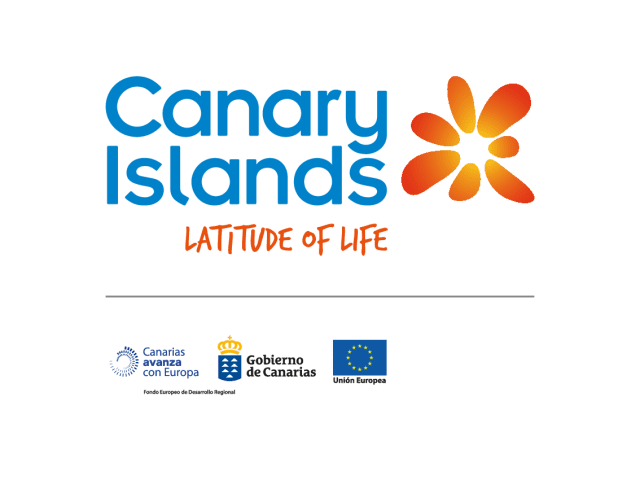Shane Pearlman works for Modern Tribe, a technology company, which allows its 130 employees to work remotely from across the globe. In 2018, Shane chose the beach. He wanted to surf, enjoy the sunset, and live a fuller life, and working remotely allowed him to do just that.
“I connect with my company directly for four hours a day from Las Palmas de Gran Canaria. The rest of the time I am free to do as I please,” says Shane. “I can spend quality time with my wife, surf – which has always been my dream, and keep on top of the housework.”
After trying out remote working in Hawaii, Japan, Costa Rica, El Salvador, the Dominican Republic and Barbados, Shane chose the Canary Islands as his base, a Spanish archipelago located near the coast of Africa in the Atlantic Ocean.
“It’s perfect,” Shane says. “I can work with a good Internet connection; the weather is warm all year round; there’s incredible natural beauty; and there’s the security of living within the European Union.”
In light of the COVID-19 crisis, and driven by the development of new technology, companies are changing the way they work, and mobile offices are springing up all over the world. Boasting year-round sunshine, a beautiful coastline, exquisite mountains and friendly locals, it’s no surprise that the Canary Islands makes for a popular base.
“Internet connections have always been good on the Canary Islands, but with the arrival of 5G, they will become excellent. Digital nomads choose Tazacorte, on the island of La Palma, for its tranquillity, Corralejo in Fuerteventura, for its beaches, and Santa Cruz de Tenerife and Las Palmas de Gran Canaria when they want to pair natural beauty with a bustling city with easy air connections,” says Ignacio Rodríguez, the founder of Nomad City and a regional executive member of the International Remote Work Association.
While the perks of enjoying life outside the traditional office are being sampled by increasing numbers of people, it looks likely that the trend of remote working is here to stay. Tech giants such as Twitter have recently announced that they will allow their employees to fulfil their work objectives from anywhere in the world.
“Now more than ever people need good air and light“, says Ignacio. “And in this respect the Canary Islands is a paradise.” With a climate of endless summer, thirty natural parks and protected spaces, biosphere reserves stretching to 60% of the archipelago’s terrain, five UNESCO World Heritage Sites, world-class beaches and an array of original cultural activities, the Canary Islands has much to offer.
The network of remote workers in Gran Canaria is close-knit. Nekelle Meier is a Dutch teleworker who runs her own marketing company, and she describes the community as “incredible”. “It is very easy to connect with everyone,” she adds. Nekelle chose Gran Canaria because the cost of living there is much lower than in many other places in Europe. Nekelle says that the climate in the Canary Islands is “wonderful throughout the year.” She adds that the archipelago is “versatile … it’s ideal for beach lovers, but it is also great if you want to go hiking, sailing, paragliding, mountain biking or trail running. And there are so many towns to discover! … In Gran Canaria, if you drive for a few hours, you reach the remote beach of Playa Guigui. You can sleep out there in the open under the stars … Then there are the festivals throughout the year. The carnival is amazing. There are great restaurants to eat out. There is great variation in the dishes, and the food is tasty and affordable … and I’m only a four-and-a-half-hour flight away from the Netherlands. The Canary Islands are definitely Europe’s paradise.”
Ignacio Rodríguez founded his first co-working space in the capital of Gran Canaria five years ago. Today there are 70 community workspaces scattered throughout the Canary Islands. “After I returned from living in the United States and Germany, I realised that in the Canary Islands, I couldn’t interact with people from different parts of the world, so we created the Nomad City event.”. Nomad City encourages and advises companies and remote workers on how to settle in the Canary Islands. When teleworkers arrive, they can choose between renting long-term accommodation and co-living in the custom-built accommodation in Las Palmas de Gran Canaria.
“Digital nomads can stay for one week or six months,” says Ignacio. “Most extend their stay on the Canary Islands because the archipelago is a 5-star destination, and now the Spanish government is preparing a project to encourage home working on the islands.”
With a total of 151,661 businesses, the Canary Islands is seventh on the list of Spanish autonomous communities with the largest number of registered companies. With the Gorona del Viento hydroelectric power station located in El Hierro, it is also a leader in clean energy. As well as this, the Canary Islands has one of the cleanest skies on the planet, and with the Canary Institute of Physics which observes the sky from two observatories in Tenerife and La Palma, the archipelago is a world leader in astrophysics.
ENDS
For more information on the Canary Islands please contact Niamh Waters niamh@travelmedia.ie

